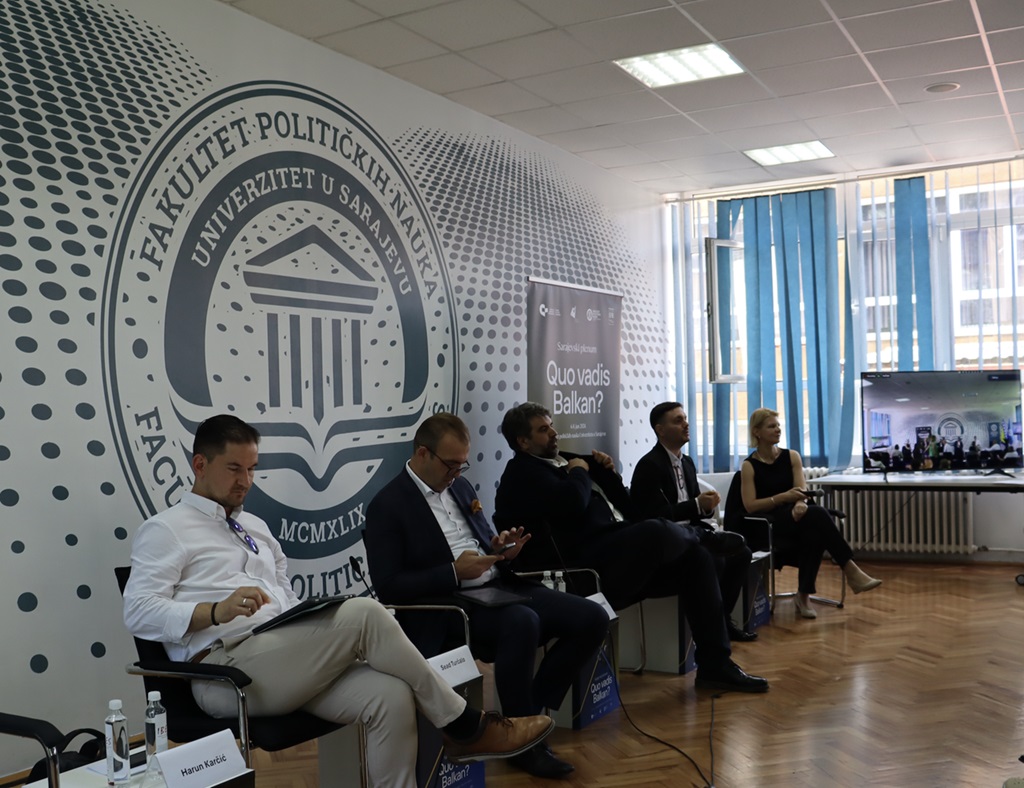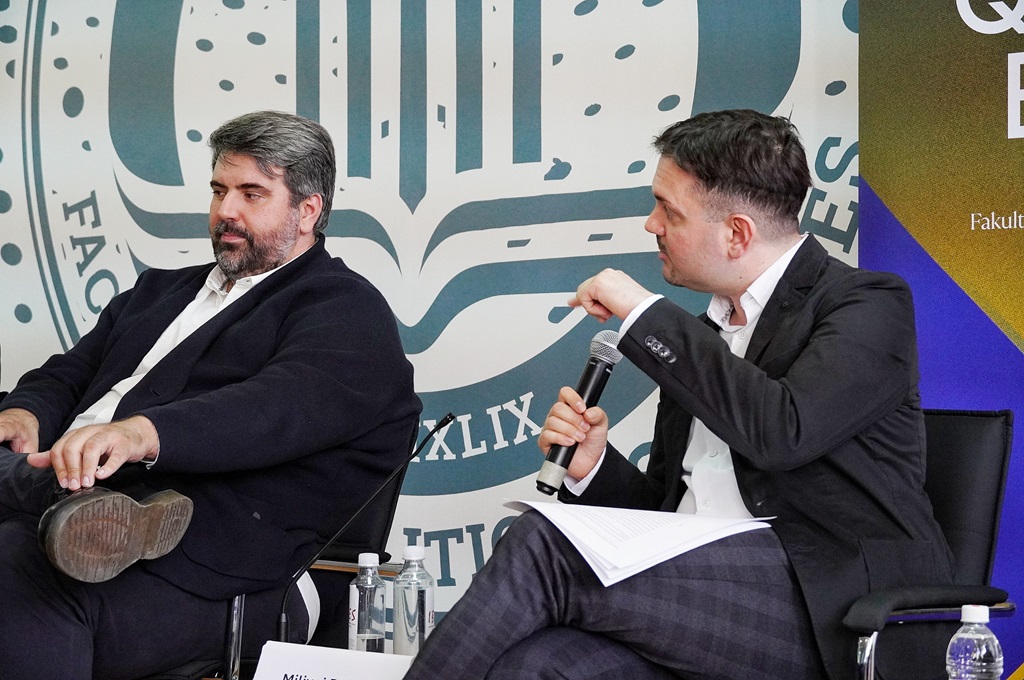The fifth panel at the Sarajevo Plenum focused on Russia and the European populist right. Presentations were given by Ljubomir Filipović, political scientist from Montenegro, prof. Dr. Sead Turčalo, Dean of the Faculty of Political Sciences of the University of Sarajevo, Dr. Milivoj Bešlin, historian from the Institute of Philosophy and Social Research of the University of Belgrade, and Dr. Harun Karčić, political analyst and journalist from Bosnia and Herzegovina, moderated by prof. Dr. Valide Repovac Nikšić from the Faculty of Political Sciences of the University of Sarajevo.
“Russia’s influence in the Western Balkans has recently been intensifying, but it is being overlooked that it has deep historical roots,” said Ljubomir Filipović, providing genesis of the development of this influence and directions of action. “After the fall of the Soviet Union, Russia lost its ideological foundation for its idea in a multipolar world and found new ways of acting,” stated Filipović, noting that this policy has three pillars – Orthodoxy, autocracy and nationality, which he explained in detail with examples. He also reflected on the manifestations of that influence in Montenegro.
“Russia, through its political discourse, creates a new reality. Putin has aligned his narrative remarkably well with radical right-wing groups in Europe that were disappointed in liberal democracy. Thus, since 2006, Russia has been purposefully supporting certain radical right-wing groups in Europe to influence European politics, offering alternative media, and its primary goal was to attempt to undermine the liberal-democratic consensus in Europe through such an approach to these specific groups “, assessed Dr. Sead Turčalo. He indicated that this approach in the Western Balkans required neither time nor resources, noting that the region is unique in the sense that Russian influence cannot be analyzed separately in individual countries, but only in the region as a whole.
“Europe should listen more to critical thought within Russia and Serbia, as well as their neighbors,” said Milivoj Beshlin, reminding that the West did not do this in a timely manner or recognize the threat from Vladimir Putin. He emphasized the ideological historical parallels between Russia and Serbia – positioning of the state as a supreme value and constant attempts to create a state without society, with the expansion of territories without internal development and modernization, then the narrative that Russia or Serbia has moral superiority and the right to rule over its neighbors to the states, which follows the narrative of exceptionality but also of vulnerability, which is why they must take measures to protect themselves and that all neighboring states must have limited sovereignty. “Another common feature is the protection of one’s people outside the borders, a narrative introduced here by Slobodan Milošević. This is an argument that Putin repeated during the aggression against Ukraine and the pressure on Moldova. Then, there is the church as the guardian of identity and the instrumentalization of the church for political and ideological purposes. Altogether, this creates the framework of the Russian, or Serbian, world,” he said, noting that there is also the concept of a party state, the absence of pluralism, and the lack of separation of powers.
Harun Karčić pointed out that, in recent years, Israel has established ties with far-right politicians from Europe, despite their anti-Semitic roots. “This trend started in 2017 when Prime Minister Netanyahu criticized “Old Europe” for its attitude towards Israel. Historically, relations between the EU and Israel have been cold, but the mood is changing. The EU still supports the two-state solution, but Israel and the European right now share common geopolitical and security interests. Both sides have similar attitudes towards Islamic radicalism and migration,” he explained. Karčić also emphasized that political pragmatism plays a key role, especially the economy and technology that connect these parties because Israel is a technological center in areas such as military technology and cyber security, but that cultural and religious reasons are also important. “This alliance allows Israel to use the growing influence of the far right in Europe for its geopolitical goals, overcoming historical animosities,” he concluded.
The Sarajevo Plenum Quo Vadis, Balkan? is organized by the Regional Academy for Democratic Development (ADD) from Serbia, the Centre for Civic Education (CCE) from Montenegro, and the Faculty of Political Sciences of the University of Sarajevo (FPN US), with the support of the European Fund for the Balkans (EFB).


